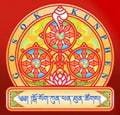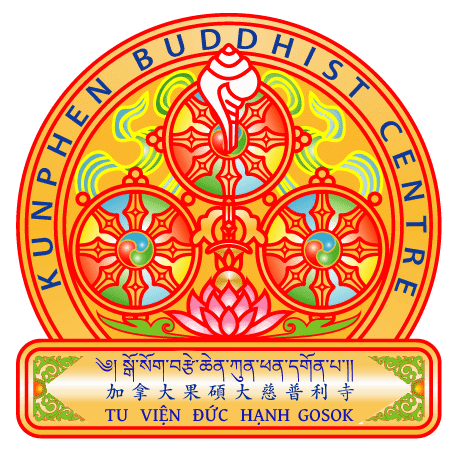Shantideva (675-725) was an Indian Buddhist mahasiddha, the “Idle Monk”, one of the Seventeen Nalanda Masters and one of the 84 Indian Vajrayana Mahasiddhas. His most renowned work was Bodhicaryavatara or “A Guide to the Bodhisattva’s Way of Life”….
寂天菩薩 (675-725) 是古印度中觀應成派著名佛教學者, 那爛陀十七班智達之一, 八十四大成就者之一,《入菩薩行論》的作者….


寂天出身西印度賢疆國的王族,其父親被稱為善鎧(Kusalavarman),母親被認為是金剛瑜伽母的化身,出生時被稱為寂鎧(Santivarman)。後至那爛陀寺依勝天(Jayadeva)大師出家,改名為寂天(Santideva)。
據說他整日吃飯睡覺冥想,無所事事,為同修所不恥,認為他敗壞了那爛陀寺的學風,他們故意邀請他參加辯經大會,希望藉此讓他丟臉而自動離開那爛陀寺。但在寂天論師升座之後,開始誦念出他的著作,卻震驚了那爛陀寺,大家都認為他是菩薩的化身。這部著作就是他著名的《入菩薩行論》 (Bodhisattvacaryavatara sastra),相傳他誦唸到:「若實無實法 悉不住心前 彼時無餘相 無緣最寂滅」時,身體慢慢升到半空中,最後沒入虛空,大眾只聽到他不斷的誦唸聲。後來他離開了那爛陀寺,至南印度修行傳法,有許多神奇事蹟傳世。(維基百科)
The younger son of a royal family came to the monastery Sri Nalanda to be ordained in the mahasanghika order. But as a pampered child, he was difficult and unreasonable. He never studied or meditated. His laziness was so much that he annoyed most of his peers and was branded Bhusuku, “The shiftless one.” Finally, Bhusuku’s behavior earned him a severe warning from the abbot that unless he mended his ways and took his turn to sit upon the temple throne to recite his memorized portion of the sutras like all the other monks, he would be expelled from the monastery. His turn was the following morning, and having not memorized anything, many of his peers imagined the event of the following day would be amusing. However, the abbot was a very kind man, and at night fall, he visited Bhusuku to give advice. Being desperate, Bhusuku said he’d do anything so that he will not fail the next morning. So the abbot told him to spend the whole night reciting the mantra of Manjusri and gave Bhusuku the secret precepts of Manjusri’s sadhana, and the blessing of the mantra, then he left.
Knowing his own weakness well, Bhusuku tied the collar of his robe to the ceiling in case he nod off during the night, and all night long he recited the mantra over and over again. At dawn, Bhusuku awake but not any wiser than he’d been the night before. Just then, a great voice boomed from the ceiling: “What do you think you’re doing!”
Bhusuku looked up and saw an enormous figure floating in the air above his head. He said he had been invoking the aid of Lord Manjusri to help him recite a sutra on that very morning and proceeded to ask who the floating person was. In reply, the unusual guest said “That’s a foolish question. You’ve been invoking me half the night.” Startled, Bhusuku finally realized he was talking to Manjusri himself! And immediately pressed his palms together in the gesture of supplication and begged for the power and realization of every quality of perfect insight.
Bhusuku then went to the great hall and mounted the temple throne before his audience. He then levitated into the air above the throne and his body blazed with great radiance. He began to compose and recite the sublime and profound discourse that came to be called the Bodhicaryavatara, “The Pathway to Enlightenment.” After he completed the 10th and last chapter he rose into the sky to the height of 7 palm trees. Here he was renamed the monk Shantideva. People began placing flowers where his feet touched and the pundits humbly requested a commentary of his discourse of which Shantideva obliged. But he refused to be the abbot when asked.
That night, after leaving his robes, begging bowl and all his sacred artifacts on the altar as offering, he left secretly. He travelled and came to the town Dhokiri where he made a wooden sword painted in gold. He requested a position as swordsman with the palace guard. He served the King for 12 years until one day when one of the guards saw Shantideva’s sword was actually made of wood. The guard reported to the King. Shantideva was summoned to the throne room. The king demanded to see Shantideva’s sword. Although he was warned of the harm it will bring, the king insisted. So, after convincing everyone in the room to close one eye, he took out his sword and a light as intense as 10 suns filled the room, blinding each unprotected eye. Everyone fell to their knees, entreating the yogin’s forgiveness and mercy. Shantideva then began to rub his healing saliva onto each injured eye, magically restoring the lost sight.
Shantideva left Dhokiri that very day and took up residence in a cave and practiced his sadhanas for some time. One day, a royal huntsman came to court with rare game for the king’s table and told the king he saw Shantideva. Immediately, the king set out for the mountains with a large entourage. There they saw Shantideva sitting on a deerskin meditating in front of what appeared to be a blank rock wall. The king told the yogin all that he had heard and asked why does he harm living beings. In reply, Shantideva said he did not kill, but healed. “Understanding that all things are but insubstantial figments of the imagination, projections of the mind. Enter the path of liberation.” Shantideva then converted the king of Dhokiri, and set all his people upon the path of truth. He served them faithfully for 100 years before ascending to the Paradise of the Dakinis.
Mahasiddha Shavaripa ||
大成就者 夏瓦利巴
84 Mahasiddhas ||
84 大成就者
Mahasiddha Shantipa ||
大成就者 賢諦巴



